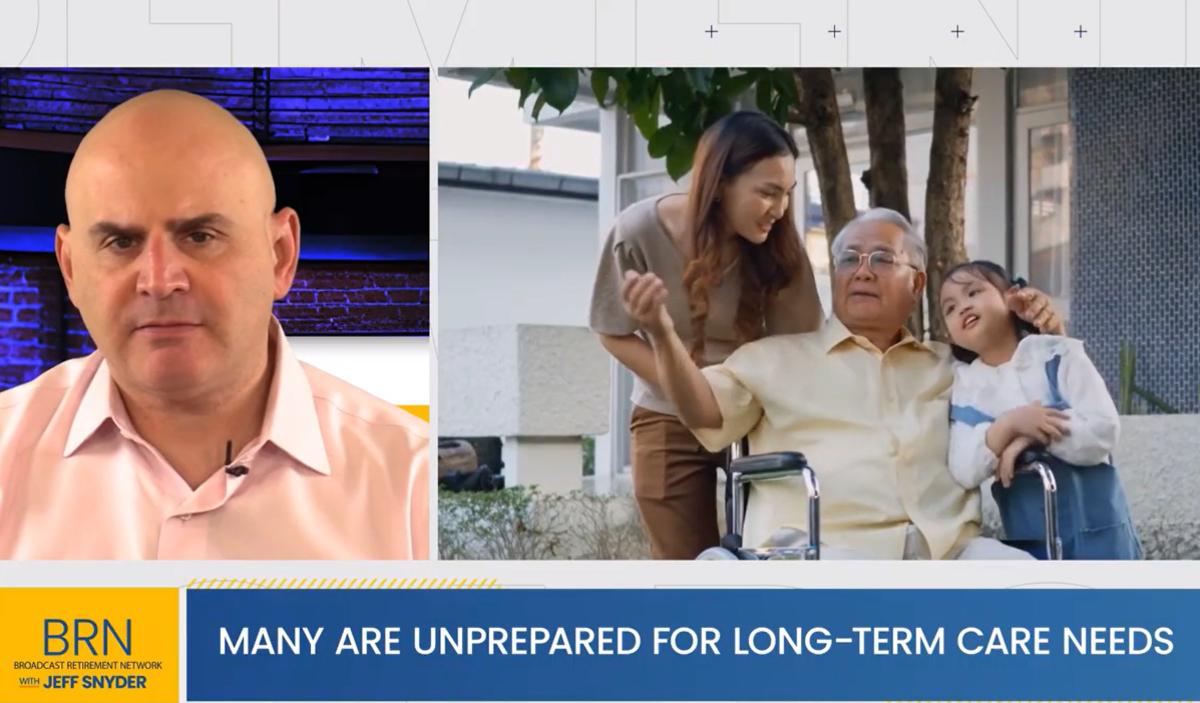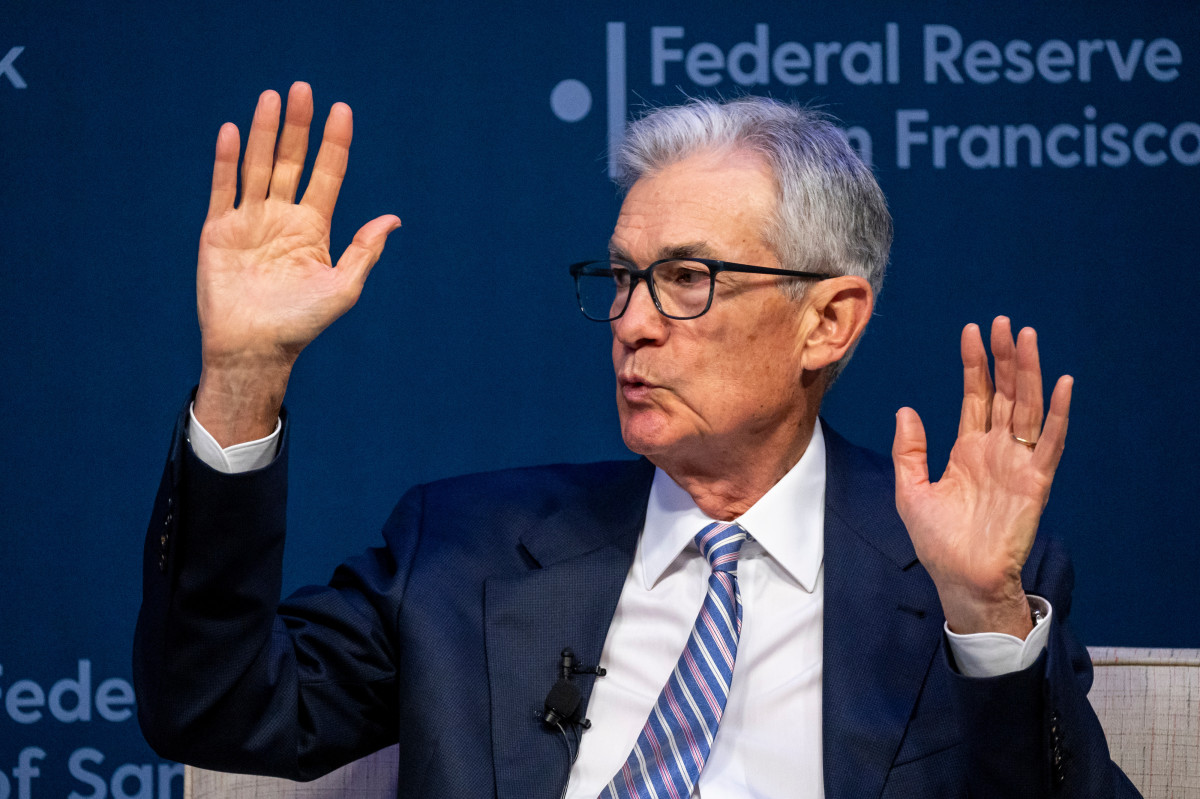Many Are Unprepared for Long Term Care Needs
A large number of adults lack discussions about care plans with family or healthcare providers.

Scrambling to find long-term care for a loved one is an experience shared by many families. And many of them are unprepared for what can be an emotional, costly and guilt-inducing process. Broadcast Retirement Network's Jeffrey Snyder discusses the lack of planning with Ana Montoya, MD, University of Michigan Health.
Jeffrey H. Snyder, Broadcast Retirement Network
(0:03) This morning on BRN, many are unprepared for their long-term care needs. (0:09) And joining me now to discuss this and a lot more, Dr. Anna Montoya is with the University of Michigan Health. (0:16) Dr. Montoya, so great to see you. (0:18) Thanks for joining us in the program this morning.
Ana Montoya, MD, University of Michigan Health
(0:20) Thank you for having me.
Jeffrey H. Snyder, Broadcast Retirement Network
(0:22) That's a pleasure, and I'm very interested in this University of Michigan study that you and the team worked on. (0:28) And I'm summarizing by basically saying our mature generations are maybe not set up or handling their long-term care needs properly. (0:41) I wanna get your reaction to the study and your feedback on that.
Ana Montoya, MD, University of Michigan Health
(0:45) Okay, thank you for the question. (0:47) These are results from our national poll on healthy aging that was conducted back in August of 2024. (0:55) And what we know is that two-thirds of older adults who have survived to the age of 65 will need long-term services at some point in their future.
(1:04) But it's really concerning what we found that 57% of adults 50 and older think that they probably will not need those services in the future. (1:16) Moreover, about half of them do not know how to plan for long-term services. (1:21) And really some of them feel that they do not need to plan for long-term services.
Jeffrey H. Snyder, Broadcast Retirement Network
(1:27) So doctor, just to kind of follow up on that, for those that don't plan or don't think they need to plan, is it because maybe they don't understand what long-term care is? (1:38) Or do they perhaps don't think that they're gonna make it? (1:43) They're just gonna live until 70 or 75.
(1:46) So they're just gonna one day, their life will end. (1:49) I mean, do you have a feeling for what's underneath that stat?
Ana Montoya, MD, University of Michigan Health
(1:55) Well, we don't know 100% what is the reason, but it definitely could be that it's this lack of awareness that they will require those services in the future. (2:07) It is the fact that they may not be receiving enough information on how to plan. (2:11) So they may not know how to plan, or again, they don't perceive it as a need.
(2:18) Many of these adults 50 and older are in what we call a sandwich generation when they're taking care of their aging parents, but they're also taking care of their younger kids who are going to college. (2:31) And probably it's the last thing that they can think of is really to take care of their long-term care services for themselves for the future.
Jeffrey H. Snyder, Broadcast Retirement Network
(2:39) Yeah, and just to kind of follow up again on that, doctor, we have an aging society. (2:45) I've talked about this before on the network. (2:47) Not only is America aging, the rest of the world is aging.
(2:50) This is a big deal because we're aging, but we're also living longer because of the modern technology and wellness and medicine, those advances. (3:03) It is probably a necessity that at some point we're all going to need long-term care.
Ana Montoya, MD, University of Michigan Health
(3:11) Absolutely, and sometimes people do not understand why that is needed. (3:18) We definitely have an aging population in our state, in Michigan also, particularly we live in a state where population is even older than the average in the United States. (3:32) So it's particularly important, not only for this state, but all over in the United States that we pay attention to these matters because there's larger proportion of adults who will become 65 and older.
(3:46) We're talking about the baby boomer generation that are becoming older in the next few years.
Jeffrey H. Snyder, Broadcast Retirement Network
(3:53) Yeah, and in terms of education, do you think that, I think a lot of people are aware, close to 65 about Medicare and Medicaid. (4:05) Do you think there's maybe a misconception about what those services, first of all, are they available for everybody? (4:13) And two, what they actually cover in terms of long-term care?
Ana Montoya, MD, University of Michigan Health
(4:19) Absolutely, we found in this national poll that there were several misconceptions. (4:25) Number one, that over 50% of adults 50 and older thought that Medicare was going to pay for those services. (4:36) And we know that that program does not cover that.
(4:38) Medicare covers for short stay, rehabilitation stays, usually after a hospitalization. (4:44) But when we are talking about long-term stay, when the patient actually requires to live in the nursing home for a longer period of time, Medicare really does not pay for that. (4:55) And we also found misconceptions about Medicaid services.
(5:00) So we know that Medicaid is a major payer in the long-term care sector. (5:06) It covers about 60%, at least in my state, 60% of Michigan's nursing home residents' long-term stays. (5:16) However, we found that only a third of adults 50 and older thought that these services were gonna be covered by Medicaid.
(5:24) And it's important to know that Medicaid covers for those individuals who have low income and limited assets and not for everyone either.
Jeffrey H. Snyder, Broadcast Retirement Network
(5:34) Right, so it sounds like there's a lot of educational need in terms of what those programs cover, who they're available for. (5:43) Are there some lessons here for the, let's talk about the industry first. (5:47) Are there some lessons from the study from the long-term care industry?
(5:52) I'm gonna say like insurance companies, nursing homes, long-term care providers, do they need to do a better job of educating the public?
Ana Montoya, MD, University of Michigan Health
(6:01) Absolutely. (6:02) I mean, we have found, you know, between the misconceptions on who's paying for that, between knowing who really is thinking about planning and who has actually taken steps to plan for long-term care services, we understand that really not a lot of people are thinking about that, not a lot of people are acting on that. (6:24) So there's definitely a lot of room for public education, you know, for adults 50 and older to, you know, take proactive steps to plan for long-term care services.
(6:37) There's a big responsibility on us as healthcare providers as well to share some of that information, some of those resources, help patients, you know, with their advanced directives or durable power journey. (6:55) There's room for policymakers really to help increase the awareness of the importance really of long-term care planning and, you know, highlight those steps that people can do, identify some practical ways, you know, to that they can start financing their long-term care services for the future. (7:15) And I will also say that, you know, there's these organizations that are, you know, at the national level, you know, area agencies on aging that not a lot of people necessarily know about that could provide some of those resources to our adults.
Jeffrey H. Snyder, Broadcast Retirement Network
(7:32) Yeah, there's a lot there there. (7:34) This study, I think, really sheds some light on the need for education. (7:40) And look, I think the reality is, is for the most part, a lot of us are gonna need, especially in the later parts of our life, we're gonna need support.
(7:49) You gotta figure that out. (7:50) It's part of the planning. (7:51) You know, once you get to retirement, next you gotta figure out your healthcare situation.
(7:57) Dr. Montoya, I think we're gonna have a, continue to have conversations around this for the foreseeable future. (8:02) It's great to meet you. (8:03) Thanks for joining us.
(8:05) And we look forward to having you back on the program again very soon.
Ana Montoya, MD, University of Michigan Health
(8:08) Thank you very much.
Jeffrey H. Snyder, Broadcast Retirement Network
(8:09) And don't forget to subscribe to our daily newsletter, The Morning Pulse, for all the news in one place. (8:14) Details, of course, are at our website. (8:16) And your subscription helps support all this great BRN content.
(8:21) And we're back again tomorrow for another edition of BRN. (8:23) Until then, I'm Jeff Snyder. (8:24) Stay safe, keep on saving.
(8:25) And don't forget, roll with the changes.
What's Your Reaction?




















































